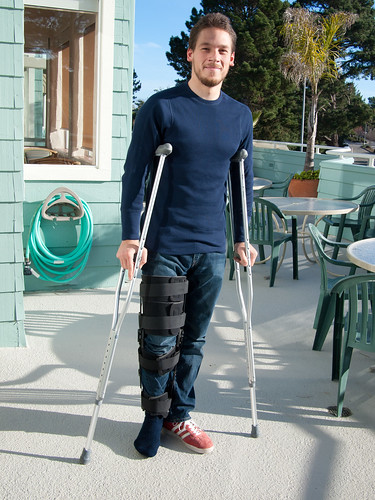 Hurt on the job? You may be in luck. Most employers are required by law to carry workers? compensation insurance. This protects both the employee in the event of a work-related injury and the employer from a lawsuit. More times than not, workers? compensation will provide employees with the opportunity to collect work-injury compensation. However, just because you are injured on the job does not mean that your guaranteed workers? comp benefits. This is actually a common misconception.
Hurt on the job? You may be in luck. Most employers are required by law to carry workers? compensation insurance. This protects both the employee in the event of a work-related injury and the employer from a lawsuit. More times than not, workers? compensation will provide employees with the opportunity to collect work-injury compensation. However, just because you are injured on the job does not mean that your guaranteed workers? comp benefits. This is actually a common misconception.
Therefore, if you?re denied workers? compensation benefits, you may have to appeal to the state?s administration agency that is responsible for overseeing workers? comp benefits. And the last thing you want to do while recovering from a work-related injury is jump through hoops in order to collect workers? compensation.
Below are five tips for getting workers? comp:
File claim promptly
Each state has a different window of time to file a claim. Once this window closes, the employee may no longer be able to file for workers? compensation. Therefore, it is extremely important that you get medical help and inform you employer about your injury immediately. Then, fill out a worker?s compensation claim form and give it to your employer. Submit this request in formal writing and keep a copy for yourself. If you do not hear from the insurer within two weeks, contact them directly?do not wait.
Seek legal assistance
The next step is crucial?seek out legal counsel to review and fully understand your rights. A lawyer can help you file your workers? compensation claim and secure your benefits. When possible, speak with a workers? compensation attorney who has experience with work-related injuries. This will be particularly beneficial if either your employer or your employer?s insurance company deny you of worker?s compensation.
Keep thorough medical records
Be sure that your doctor accurately fills out your medical records in order to avoid any unnecessary hearing delays. Your medical records should include a full diagnosis, course of treatment and any pertinent disability information. Also, make sure your medical records include evidence of how your injury is directly related to your job. You should also document any mental disability that is a direct result of your work-related injury, such as depression. And make duplicate copies of your medical records too.
Contact State Administrative Agency
This is next step is important. If you are denied workers? compensation benefits from your employer, you must immediately contact your state?s workers? compensation board. Generally speaking, you have a window of one to three years to file an application with your state agency. Any application filed thereafter will most likely be denied. Your lawyer can help you review your workers? compensation file and speak on your behalf at your administrative hearing.
File for an appeal
If your claim is denied after your administrative hearing, the court will inform you of how many days you have to appeal your case. Appealing a judicial decision from a workers? compensation hearing can be very tricky. You must meet formal requirements regarding judicial mistakes made by the previous judge in order to convince the court of reasons to overturn the previous decision. That being said, it is extremely important that you choose an attorney that understands both workers? compensation and the appeals process.
Attached Images:
Sarah Barnes is a freelance writer who specializes in workers compensation claims process. As a paralegal, Sarah spends most of her time researching and defending work-related injuries.
Source: http://www.injurylawnews.us/2012/11/26/5-tips-for-getting-workers-comp/
wwe wrestlemania oakland shooting mega millions winning numbers autism speaks ubaldo jimenez ncaa final country music awards
No comments:
Post a Comment
Note: Only a member of this blog may post a comment.